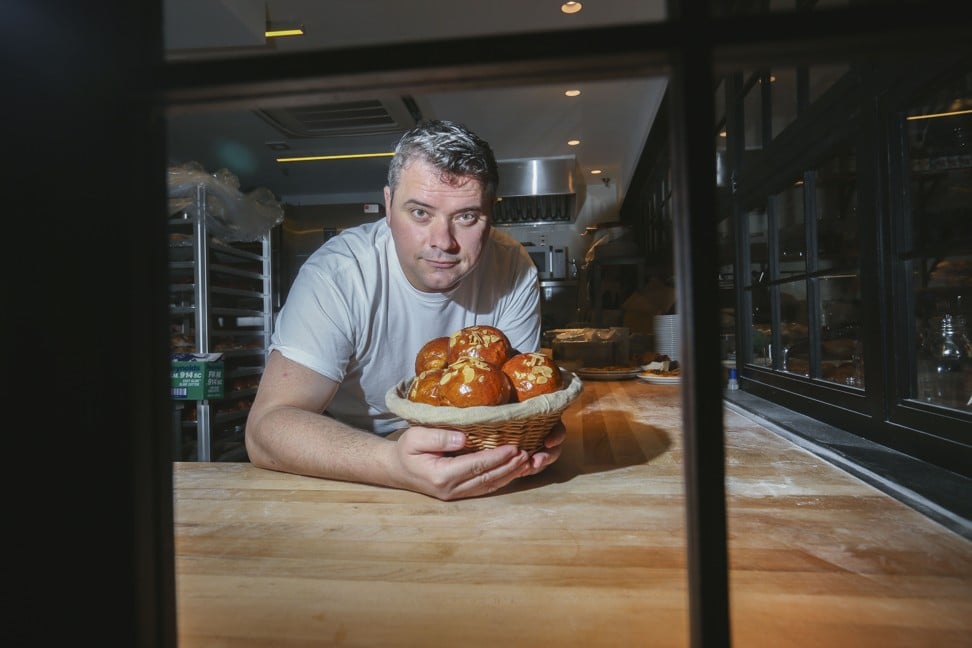
Hot croissants: in Hong Kong, French bakery veterans open neighbourhood bakeries with a nod to local tastes
One baked for a top Hong Kong hotel, the other with Pierre Hermé; in the space of seven months, both opened bakeries with local partners where they respect French tradition but tweak their bread and pastries to cater to Hong Kong taste
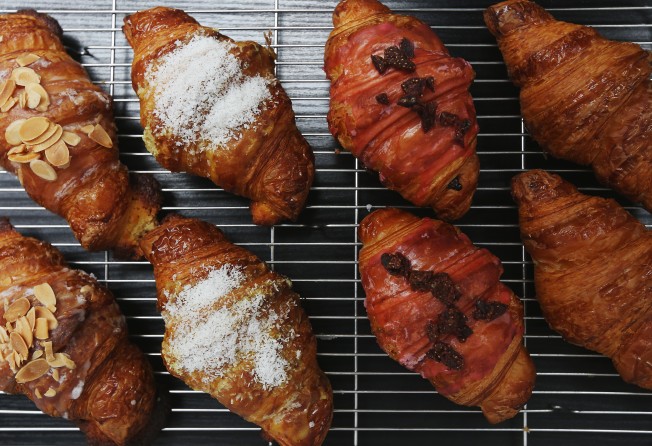
It is close to 11am on a weekday and already many of the items at the newly opened Bakehouse have sold out. Lines have started to form again at the rustic brick facade – the first round starts at 8am – but “not to worry”, says founder Grégoire Michaud, “I’ve saved you two croissants.”
The Wan Chai bakery has only been open for three weeks. It did not take long for people to notice; at weekends, they sell 700 croissants a day. Usually there is nothing left at the end of the day.
A baker for more than 25 years, Michaud spent eight years as the executive pastry chef at The Four Seasons Hotel Hong Kong, where he oversaw bread and pastry production. In 2013, he opened Bread Elements, a wholesale bakery that supplies croissants and pastries to hotels and restaurants.
Having a wholesale business made many things possible, he explains, such as establishing a base of loyal customers, and being able to import good quality ingredients in bulk while keeping prices low.
“We had a plan to start the wholesale business first, because if I started by opening a bakery, the flour [we import from France] will cost a lot, our bread will cost a lot – which is the case for other bakeries,” Michaud explains. “Many people tell us we are too cheap, but we just want to be a normal bakery. Good quality, fairly priced, very simple.”

Bakehouse offers everything from baguettes (HK$28), seeded sourdough (HK$32), pain de campagne (HK$30) and brioche (HK$42) to cruffins (HK$38), fruit and cheese Danishes (HK$22) and matcha cream Hokkaido milk buns (HK$28). For lunch, soups, salads and sandwiches are available.
The counter also features local artisanal products such as Monde Chocolate by chocolatier Andy Tsang, and coffee from Urban Coffee Roasters, a company that roasts its own beans.
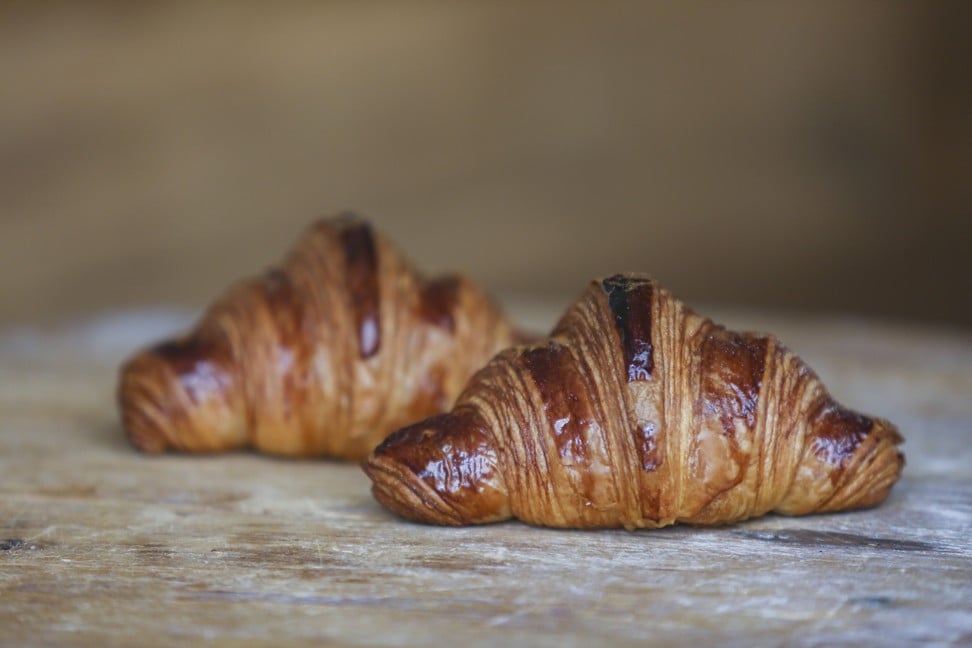
Taking Hongkongers’ preferences into consideration was pertinent when it came to planning the menu.
“If I only listened to myself, I would do a two-kilogram rock-hard loaf of rye bread that no one will enjoy,” Michaud says. “I love it, it’s my favourite bread. But if I do this and say this is organic sourdough and the true meaning of bread, this is very arrogant, because the customer will think it’s too big, too sour, too chewy and too hard.”
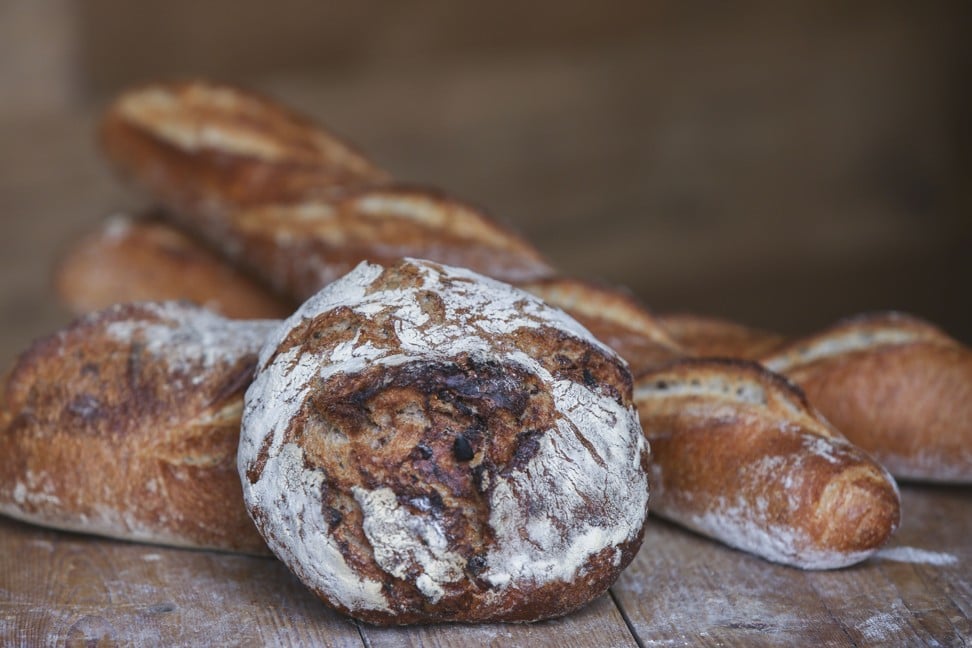
Having lived in Hong Kong for 18 years, Michaud has learned to cater to local palates by tweaking the way he ferments his dough (sourdough,can vary in acidity depending on the way the dough is fermented.)
He started with his now-160kg mother dough, or sourdough starter, 13 years ago (“I call him Richard,” he jokes), feeding it twice a day with water and organic stone-milled flour. To balance and minimise acidity, he long-ferments the dough in the fridge to reduce acetic acid (“like in vinegar”) and increase the lactic acid (“like in milk”) for “roundness of flavour”.
The bread is baked for less time than it would be in France, so that the crust is not as thick and hard. The result is something much softer, less acidic and easier to chew.
“You can’t do more or put more love into a bread,” Michaud says. “We can make sourdough that tastes like vinegar, but I think people won’t be so happy.”
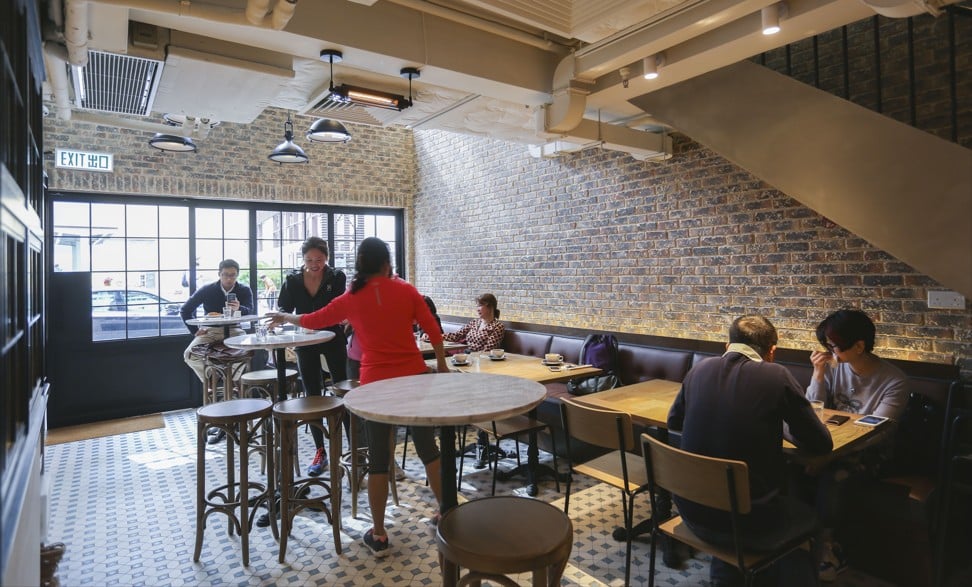
Michaud’s day starts at 3am, when he and his partner Mark Yeung Kar-ming, who has been with Michaud since his days at the Four Seasons, prepare all the bread and pastries. The dough is delivered from a production kitchen in Chai Wan to Bakehouse every day, where it is shaped, proofed and baked on site. Batches of laminated dough for the Danish pastries are baked several times a day to keep them as fresh as possible.
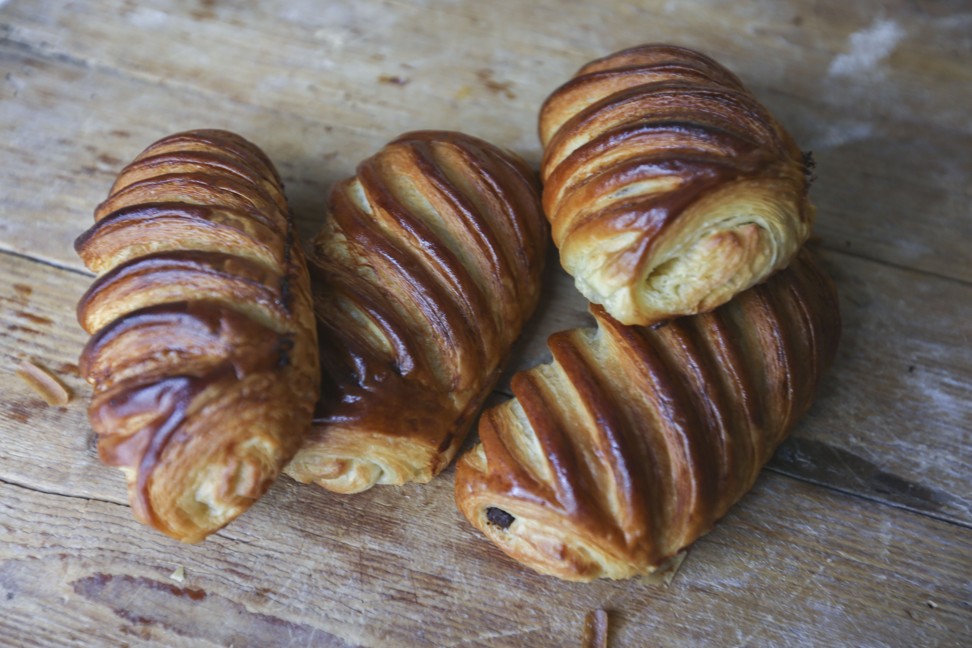
Michaud says it is important to “choose to become a bakery in the true sense of the term where you feed the people who live around you”, rather than “be a superstar being featured in world newspapers and charge HK$50 for a croissant because you can”.
“I don’t want to become a shop known only for what I sell,” he adds. “I wouldn’t want to have buses of people coming to queue for a croissant. I want to be famous with the neighbourhood, with the people living around here.
“[I want it to be] if you buy bread, it’s great bread; if you sit down for lunch, you’re full and not being ripped off. You get to know the people, they come back for the same thing. I like very much this feeling.”
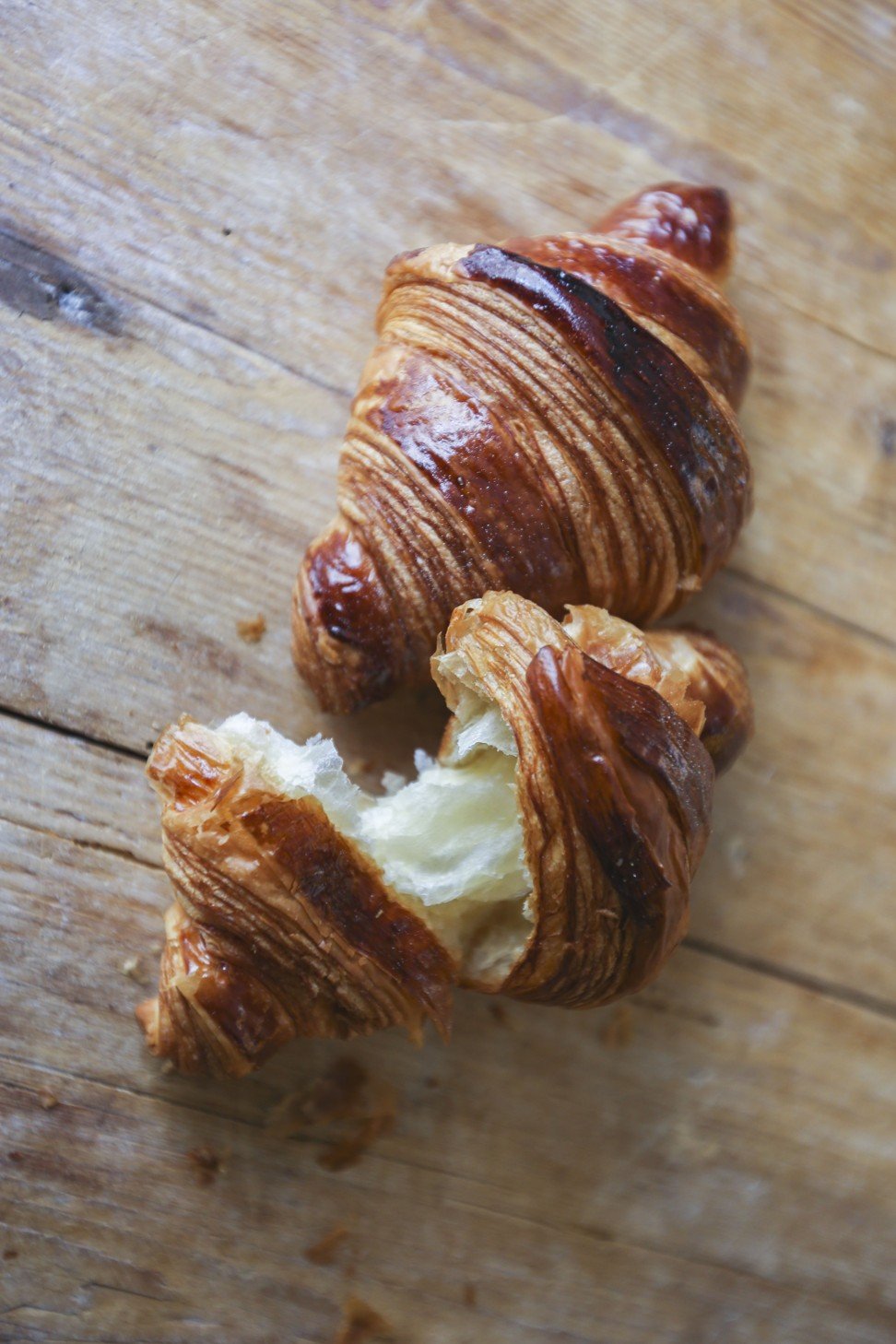
Meanwhile, in Tai Hang, near Causeway Bay, Plumcot, started by husband-and-wife team Camille Moenne-Loccoz and Dominique Yau, opened in July 2017.
If I only listened to myself, I would do a two-kilogram rock-hard loaf of rye bread that no one will enjoy
Starting with croissants and 11 flavours of ice cream, in the last six months their offerings have evolved to include bread, madeleines (HK$25 to HK$30), pastries such as cinnamon rolls (HK$22) and vanilla brioches (HK$25), cookies (HK$35), and coffee (HK$30 to HK$40).
Ice cream flavours range from Earl Grey and chestnut to blue cheese and ginger. Every week, the couple offer new pastries on a rotational basis.
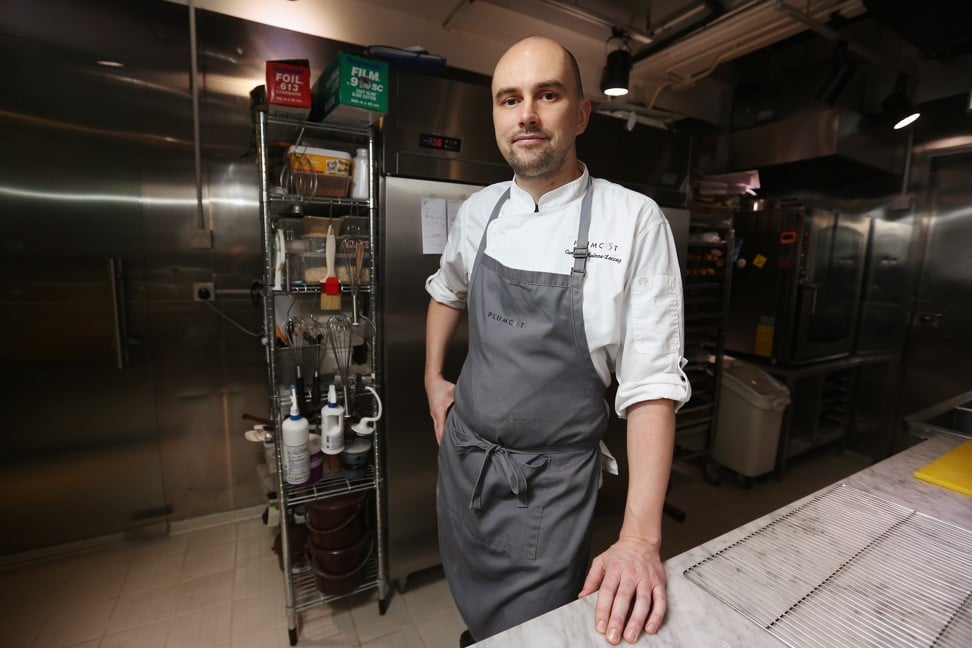
Moenne-Loccoz, who has two decades of baking experience, worked at the Michelin-starred Hélène Darroze in Paris before joining Pierre Hermé Paris, working alongside Hermé, a famous pastry chef, in the research and design department for eight years.
Yau, originally from Hong Kong, spent a decade in Paris gaining experience at Michelin-starred establishments Senderens, Hotel Le Royal Monceau and The Peninsula Paris. The couple met in Paris, at a friend’s party, and first talked about opening their own little shop in 2009.
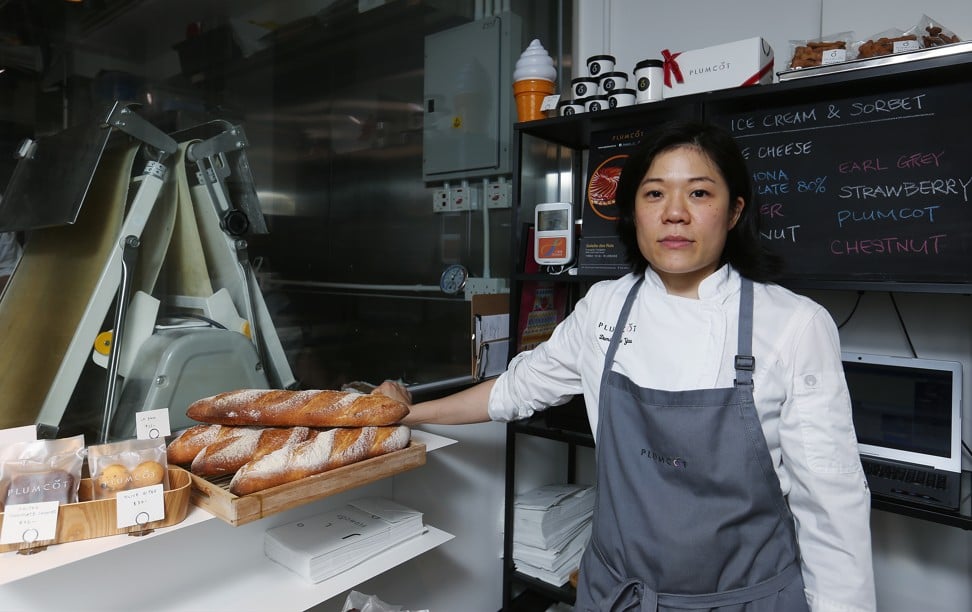
Doing so in Hong Kong had its challenges. “The rent in Hong Kong was really a deterrent,” Yau says. “We were looking at more factory buildings in the beginning, like in Wong Chuk Hang and Ap Lei Chau, but it’s difficult to have a shop in a factory building and the rent wasn’t so different.
“We also had a general idea of what to expect in a busy area like Central, but it’s a lot of pressure to start off with something like that. We liked Tai Hang; it’s cool because it’s a good mix of old and new and young and old and everything. It’s sort of like a village.”
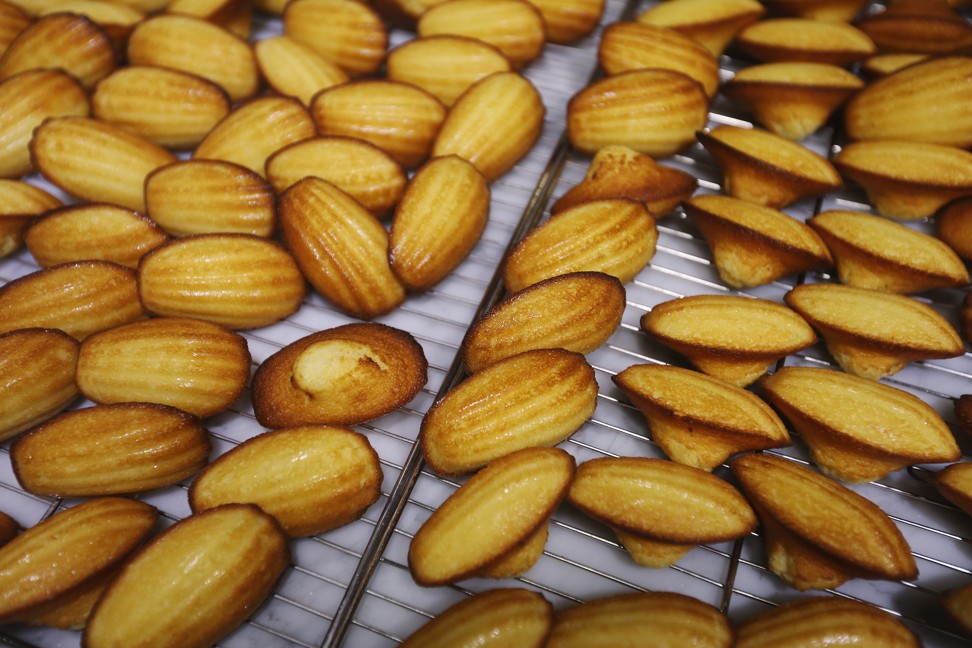
Moenne-Loccoz and Yau are the only staff. The couple start preparing for the day at 7am for an 8am opening and make the items throughout the day until they close at 8pm. The bakery, too, is small; the kitchen itself occupies three-quarters of the space.
One of their most popular items is their flaky croissant, which disappear from the counter quickly (most of the other pastries also sell out every day). On weekdays, they sell 50 to 60 croissants, and at weekends, nearly 250.
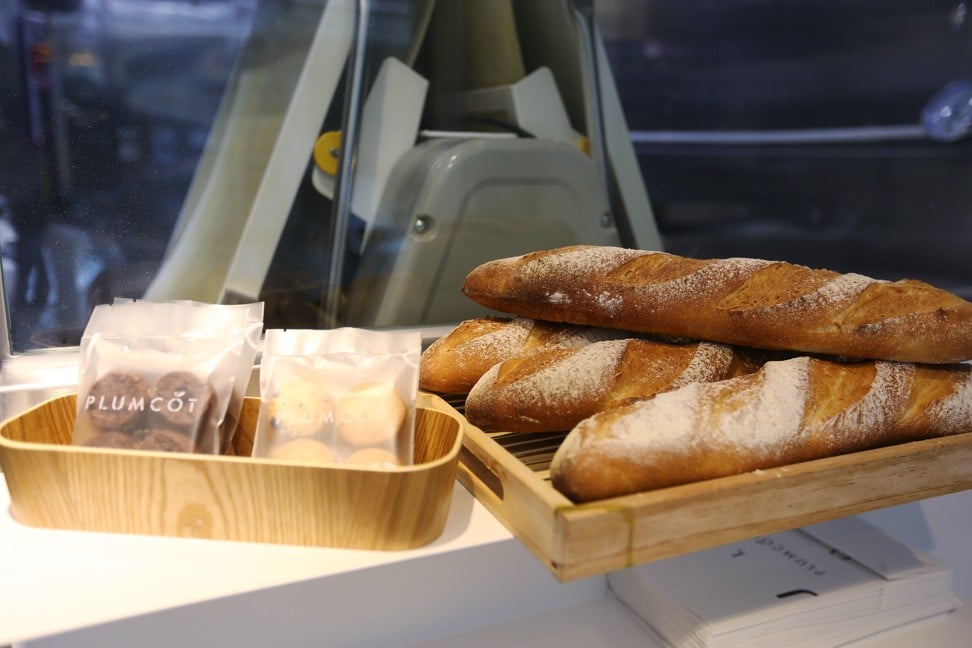
The key to perfect pastry is using high quality ingredients, Moenne-Loccoz says. “Don’t try to take a short cut with bad products. People ask: ‘Why is your madeleine not soggy?’ Because it’s just better ingredients. We use French butter and flour and Austrian milk.”
We liked Tai Hang; it’s cool because it’s a good mix of old and new and young and old and everything
Freshness is crucial, too. “We don’t keep anything for the next day,” Yau says. “Whatever’s left, we tend to give away to our neighbours.”
Some customers like to ask for something less sweet, Yau says, “but Chinese desserts are actually really sweet. Like the red bean soup, the sesame tong yuen. And I noticed they always buy the product that is the sweetest. I think they actually like it, you know, but we’ve changed some of the recipes so they’re less sweet than the normal ones in France.”